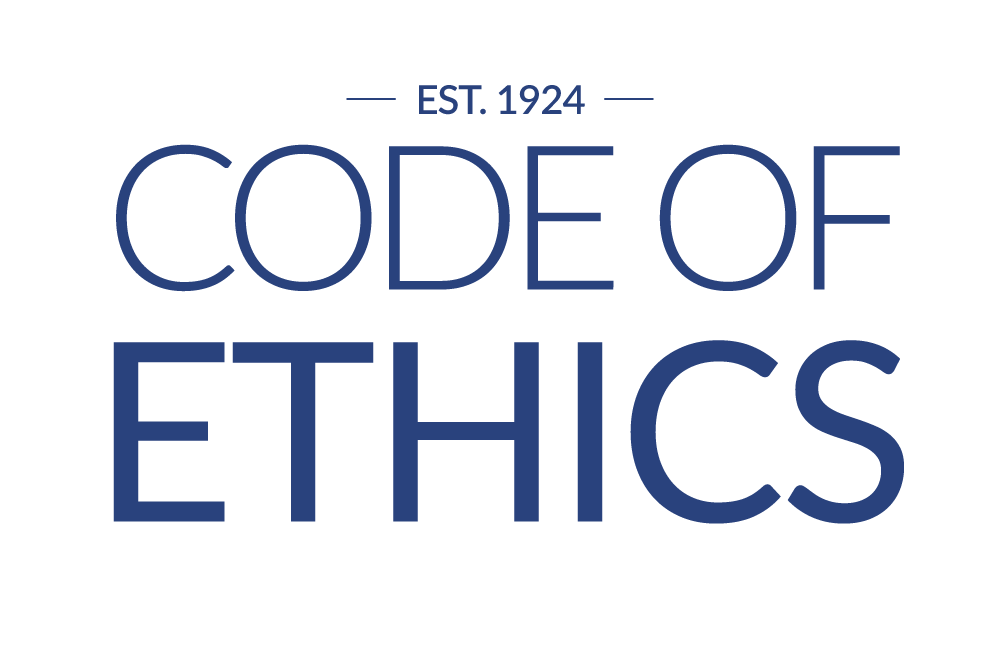
In 2013, ICMA began reviewing the ICMA Code of Ethics by engaging with members on the relevancy of each tenet to the profession. Annually, the Committee on Professional Conduct (CPC), a standing ICMA Executive Board committee, selects the tenet(s) to review with the membership to determine if revisions are needed. This process will continue until the entire Code has been reviewed. ICMA’s Constitution requires that a majority of members approve any amendments to the tenets by ballot, while the board approves changes to the guidelines that help members apply the principles outlined in the Code.
Tenets 5 and 6 Revisions
The CPC selected Tenets 5 and 6 to review in October 2018 because both address aspects of policy recommendation and decision-making processes and share a focus on a member’s role in implementing a governing body’s decisions. Following facilitated discussions with members during regional conferences and state association meetings in early 2019, the CPC proposed revised language for feedback through a membership survey in November 2019. Members were supportive of the proposed changes and the board approved placing the revisions on the May 2020 ICMA election ballot.
Members overwhelmingly voted in favor of the revisions to Tenets 5 and 6. The change to Tenet 5 includes the addition of providing technical and professional advice about policy options to elected officials and updates the language to highlight the member’s role in collaborating with elected officials to set goals for the community and organization. The revision to Tenet 6 better reflects the decisions elected officials make are not limited only to policy adoption, elected officials are accountable to the people for those decisions, and members remain responsible for implementing those decisions.
The updated Tenets 5 and 6 language follows and is effective as of June 10, 2020:
Tenet 5. Submit policy proposals to elected officials; provide them with facts, and technical and professional advice about policy options; and collaborate with them in setting goals for the community and organization.
Tenet 6. Recognize that elected representatives are accountable to their community for the decisions they make; members are responsible for implementing those decisions.
Guideline Updates
During the June 2020 board meeting, the board considered the CPC’s recommendation to revise the conflicting roles guideline to Tenet 5. The guideline references a potential conflict by serving as both the city manager and city attorney and it has not been updated since 1972. The CPC recommended new language to reframe the issue beyond the narrow example given to address situations where there could be a conflict by virtue of holding two positions within the same organization or externally and that members have an obligation to disclose and disengage to the greatest extent possible. The board approved this change as well as the CPC’s recommendation to move the conflicting roles guideline to Tenet 3, where it is now aligned with the existing guidelines on conflicts of interest.
The revised Tenet 3 guideline appears below:
Conflicting Roles. Members who serve multiple roles – either within the local government organization or externally – should avoid participating in matters that create either a conflict of interest or the perception of one. They should disclose any potential conflict to the governing body so that it can be managed appropriately.
Following membership approval of the revisions to Tenets 1 and 2 in October 2019, the CPC reviewed member feedback on the Tenet 2 guideline on advice to officials of other local governments gathered throughout 2018 and 2019. In June 2020, the board approved the addition of the phrase “in order to uphold local government professionalism” to the existing guideline language to explicitly state the reason for providing this notification to a colleague. The revised guideline to Tenet 2 follows:
Advice to Officials of Other Local Governments. When members advise and respond to inquiries from elected or appointed officials of other local governments, they should inform the administrators of those communities in order to uphold local government professionalism.
To date, these tenets and guidelines have been reviewed: Tenets 1, 2, 3, 4, 5, 6, 7, and 12 as reflected in the updated ICMA Code of Ethics. The remaining tenets to review with the membership are Tenets 8, 9, 10, and 11.
Members with questions about these updates can contact Jessica Cowles, ethics advisor, at jcowles@icma.org or Martha Perego, director of member services and ethics, at mperego@icma.org.
New, Reduced Membership Dues
A new, reduced dues rate is available for CAOs/ACAOs, along with additional discounts for those in smaller communities, has been implemented. Learn more and be sure to join or renew today!
